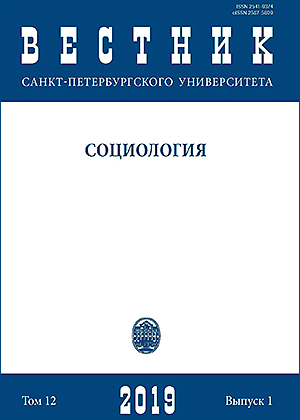Reconsider contemporary capitalism through reproductive tourism
DOI:
https://doi.org/10.21638/spbu12.2019.103Аннотация
Мотивом к написанию данной статьи послужили полевые исследования автора, связанные с изучением биотехнологических проблем. В ходе исследования возникли сомнения в возможности и целесообразности использования в качестве универсальной модели капитализма, сформированного в европейских странах и США. Автор считает, что дилеммы, порожденные современным капитализмом, вызывают необходимость его переосмысления в контексте различных культур. Для аргументации своей позиции он рассматривает пример репродуктивного туризма. Статья отвечает на два исследовательских вопроса: 1. Почему для понимания и объяснения практик репродуктивного туризма недостаточно использовать дискурсы, ориентированные на европейские страны и США? 2 Как из репродуктивного туризма рождаются глобальные связи и отношения господства? На основе анализа литературы по современному капитализму, используемых в ней ключевых понятий, а также на основе анализа литературы по репродуктивному туризму автор показывает специфику данного феномена в разных культурах. На примере кейса Тайваня демонстрируется, как репродуктивный туризм, помещенный в определенный культурный контекст, воспроизводит отношения господства, и что представляют собой эти отношения. В статье делается вывод о необходимости расширения спектра эмпирических исследований репродуктивного
туризма в разных культурных контекстах для обсуждения внутренних противоречий капиталистического дискурса Европы и США и описания различных моделей современного капитализма.
Ключевые слова:
капитализм, коммерциализация, разнообразие, репродуктивный туризм, сильная дискуссия
Скачивания
Библиографические ссылки
References
Загрузки
Опубликован
Как цитировать
Выпуск
Раздел
Лицензия
Статьи журнала «Вестник Санкт-Петербургского университета. Социология» находятся в открытом доступе и распространяются в соответствии с условиями Лицензионного Договора с Санкт-Петербургским государственным университетом, который бесплатно предоставляет авторам неограниченное распространение и самостоятельное архивирование.




